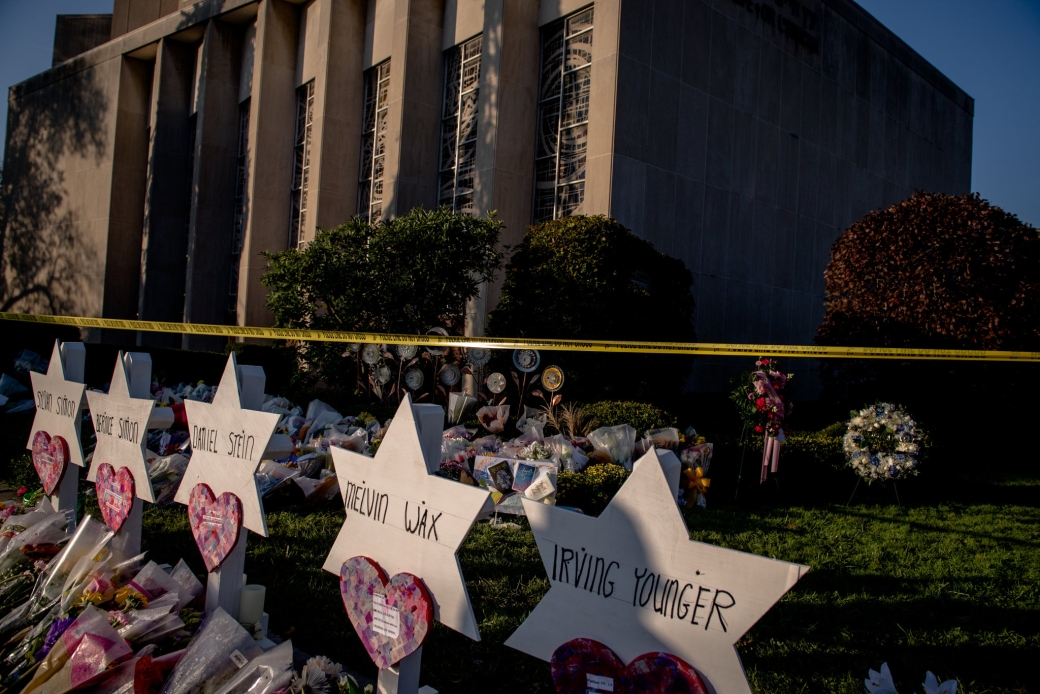Robert Bowers and the Risk of Misdefining Antisemitism

On Friday, June 16th, 2023, Robert Bowers was found guilty on all 63 criminal counts he faced for killing eleven Jewish worshippers in a mass shooting at the Tree of Life synagogue in Pittsburgh on October 27th, 2018. Bowers was driven by the extreme right-wing Great Replacement conspiracy theory, which alleges that a white genocide directed by Jews is occurring in America and the Western world through Jewish efforts to replace white people with non-white and non-Christian immigrants and refugees. This conspiracy theory motivates much of the extreme right and their militant accelerationism. Nevertheless, throughout the trial, both the prosecution and defense displayed a poor understanding of antisemitism, particularly during discussions surrounding Bowers’ antisemitic hate crime charges. The very definition of antisemitic hate crimes as religious-based demonstrates the inaccurate understanding enshrined in our laws, with both the Department of Justice’s given example and the particularities of Bowers’ beliefs going well beyond mere religious motivation. Ultimately, the trial reflected these common misconceptions around the nature and content of antisemitism, which hamper efforts to understand and thus confront not only the burgeoning threat of antisemitic violence, but also white supremacy’s internal logic and its central role in far-right lone actor terrorism.
During his trial, Bowers’ deep-seated antisemitism was demonstrated time and time again through the state’s evidence, not least of which by Bowers’ assertion to police that “all these Jews need to die.” The prosecutor framed the shooting by Bowers, who has a history of engagement with overt white supremacist and neo-Nazi content online, as being driven by a religiously-oriented prejudice, targeting Jews for no reason other than their faith. While antisemitic ideas found their origin in religion and still often use religion as a vehicle for transmitting hateful beliefs and conspiracy theories, they have long since outgrown religion’s narrow confines.
Bowers’ defense attorney, on the other hand, tried to defend him from the antisemitic hate crime charges by arguing that his mass shooting was not driven by religious hatred, but only by a delusional belief in the aforementioned antisemitic Great Replacement conspiracy theory. Discussions around the topic are used to obfuscate antisemitism discourse as a means of absolving and whitewashing antisemites, as the defense attorney did here. The focus is thus shifted from the observable realities and effects of antisemitism onto cynical sophistry designed to provide cover for individuals, beliefs, and movements trafficking in antisemitism.
What the prosecution and defense both failed to grasp is that antisemitism does not function as a primarily religious prejudice. To the extent that we do see religious justifications given for antisemitic belief, it is in service of conspiratorial racial narratives positing an essential Jewish nature. Antisemites do not generally incite violence against Jews because they want Jews to convert to a different religion, or because they believe that Jews are not living in proper accordance with what they perceive to constitute Judaism. Instead, antisemites frequently present Jews as a separate and inferior race imbued with various negative traits, aiming at carrying out a malevolent agenda on the world at large—views that form the basis of conspiracy theorizing about Jews and provide a compelling framework for mobilization to violence.
The racialized concept of Jewish malevolence is integral to antisemitism and cannot be decoupled from the conspiracy theories used to support that view that alleges Jews to be a foreign element to humanity, intent on its domination and ultimate destruction. This, in fact, lies at the ideological heart of white supremacist thought, a worldview within which Bowers is steeped and that he used to justify his terrorist attack on the Tree of Life synagogue. Allegations of a malign Jewish influence on humanity have been present in antisemitic thought since classical antiquity. These allegations have especially come to characterize antisemitism following the rise of European nationalist movements in the 19th century. The most infamous example of this is the 20th century fascist movement in Nazi Germany for which Bowers expressed support and which perpetrated the genocide of six million Jews and their near-total eradication from the European continent.
So long as misconceptions around the nature and content of antisemitism remain not only socially ubiquitous, but also instrumental for setting legal precedent and hate crime policy, it will remain a challenge to properly confront antisemitism as a key component of extremism and conspiracy theorizing, and to understand why it drives people to commit acts of violence. Without clarity around the racial component of antisemitism, discussion of what constitutes antisemitism will continue to be left open to cynical exploitation in the name of exculpating antisemites—much as it was here with Bowers. Our ability to combat antisemitism as a form of racism and to combat the hate crimes committed in its name will be limited. The crux of antisemitism is not differing religious tenets or texts, but essentialized racial classifications that flatten Jews into a malleable idea of a negative other, a foreign and corrosive obstacle to be overcome to realize a better world for a humanity presented as distinct from and antithetical to Jews and their cultures. The content of an individual Jewish person’s belief or character is irrelevant in such thought; the problem is ingrained, an impurity that cannot be washed away but through eradication. These paradigms of racialized essentialism, hierarchical caste systems, and their concomitant supporting conspiracy theories are what sign the warrant for genocidal violence. Despite the defense’s protest that Bowers couldn’t be guilty of antisemitic hate crimes because he wasn’t motivated by religious prejudice, the beliefs he expressed are an extreme form of antisemitism, and their structural basis is that of violent extremist ideology more broadly. What drove Robert Bowers to mass homicide was not an aversion to Jewish religious doctrine or the particularities of a Jewish individual’s beliefs, but a sweeping belief of the Jewish people as an inferior race that constituted a malevolent force in the world—one which could only be remedied through redemptive violence.
